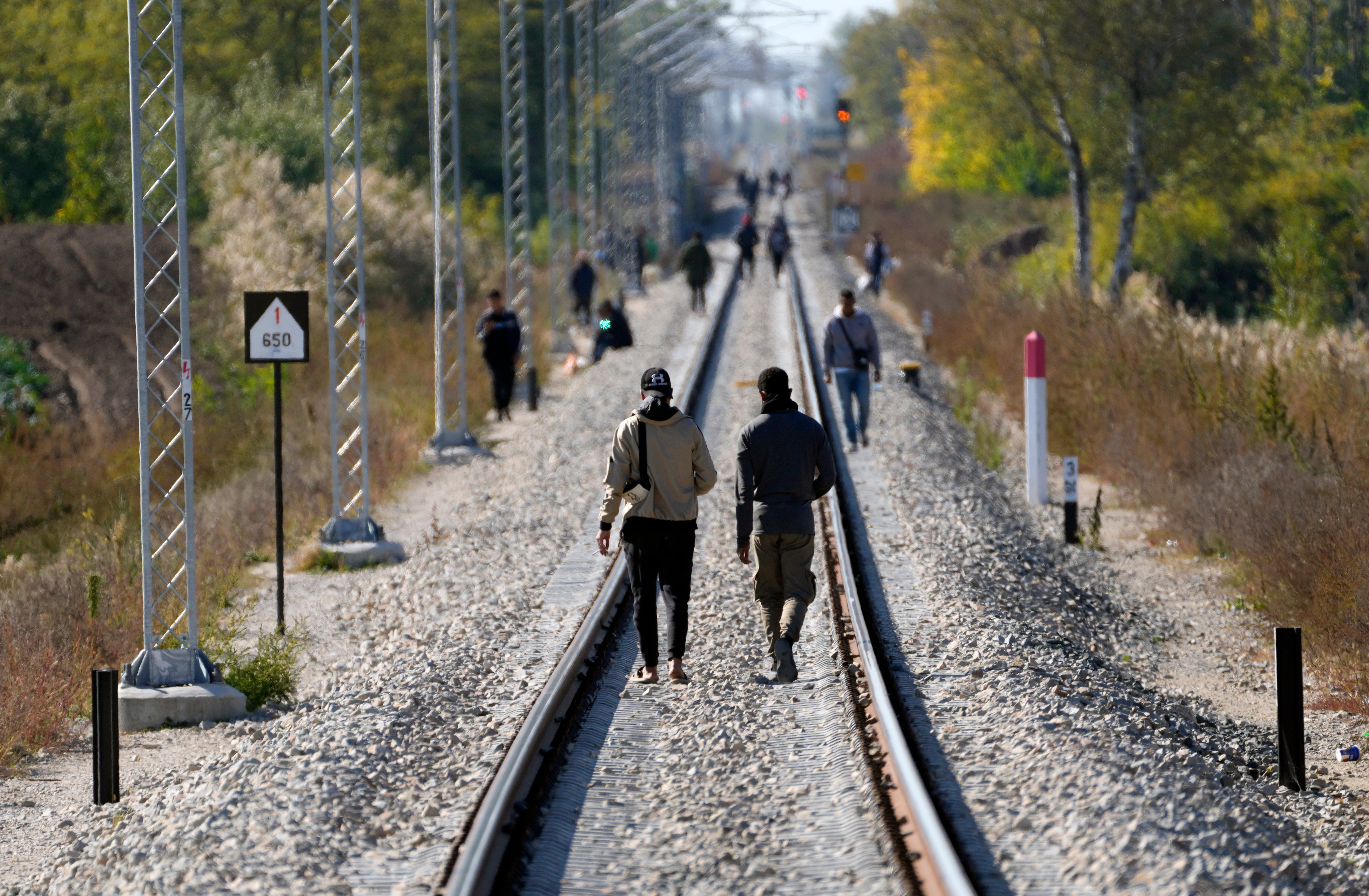EU expanding border guard presence along busy Balkan route
The European Union is expanding the presence of its border protection agency Frontex to North Macedonia to strengthen international policing of an increasingly popular migration route in the Western Balkans

Your support helps us to tell the story
From reproductive rights to climate change to Big Tech, The Independent is on the ground when the story is developing. Whether it's investigating the financials of Elon Musk's pro-Trump PAC or producing our latest documentary, 'The A Word', which shines a light on the American women fighting for reproductive rights, we know how important it is to parse out the facts from the messaging.
At such a critical moment in US history, we need reporters on the ground. Your donation allows us to keep sending journalists to speak to both sides of the story.
The Independent is trusted by Americans across the entire political spectrum. And unlike many other quality news outlets, we choose not to lock Americans out of our reporting and analysis with paywalls. We believe quality journalism should be available to everyone, paid for by those who can afford it.
Your support makes all the difference.The European Union signed an agreement Wednesday with North Macedonia to deploy officers from the bloc’s border protection agency Frontex in the small Balkan country as it expands its reach into nearby non-member states.
The signing ceremony in North Macedonia’s capital Skopje was attended by EU Commission President Ursula von der Leyen and Home Affairs Commissioner Ylva Johansson.
“This agreement is not only very important because it strengthens our cooperation on migration but also because it shows that … we fully expect that now North Macedonia is moving forward along the European path,” von der Leyen said.
The country has long sought to join the 27-nation bloc, and is due to start accession negotiations in July.
Illegal migration along the so-called Western Balkan route, spanning much of the former Yugoslavia, has steadily increased since 2018. More than 105,000 illegal border crossings from the region into the EU were detected by Frontex between January and September, a sharp increase from the 2021 annual total of nearly 62,000.
Frontex already has agreements with Western Balkan countries Albania, Serbia, Montenegro and Bosnia and Herzegovina — all which are seeking to join the bloc — but wants to expand its powers there to have a presence at border areas that do not only adjoin with EU member states.
It has also pledged 350 million euros in support to combat illegal migration in those four partner countries between 2021 and 2024, increasing the amount initially budgeted by 60%.
Von der Leyen, who met with North Macedonia’s Prime Minister Dimitar Kovachevski, also promised continued EU support to Western Balkan countries to help develop alternatives to natural gas from Russia, a major regional supplier, adding that the EU was committed to a new round of eastward expansion.
She announced budget support worth 80 million euros to help North Macedonia deal with the impact of the high energy prices on households and businesses, adding that grants totaling 500 million euros would be made available to non-member states in the region to invest in energy connections, energy-efficient infrastructure and renewable energy.
“I’m deeply convinced that Europe and the European Union are not complete without North Macedonia,” she said. “We want to have you with us. We’re friends, we’re partners and one day we’re going to be in one European Union.”
EU officials did not announce details of the planned new Frontex deployment. Von der Leyen will travel on to Kosovo, Albania, Bosnia, Serbia and Montenegro.
___
Gatopoulos reported from Athens, Greece
___
Follow AP’s coverage of migration issues at https://apnews.com/hub/migration